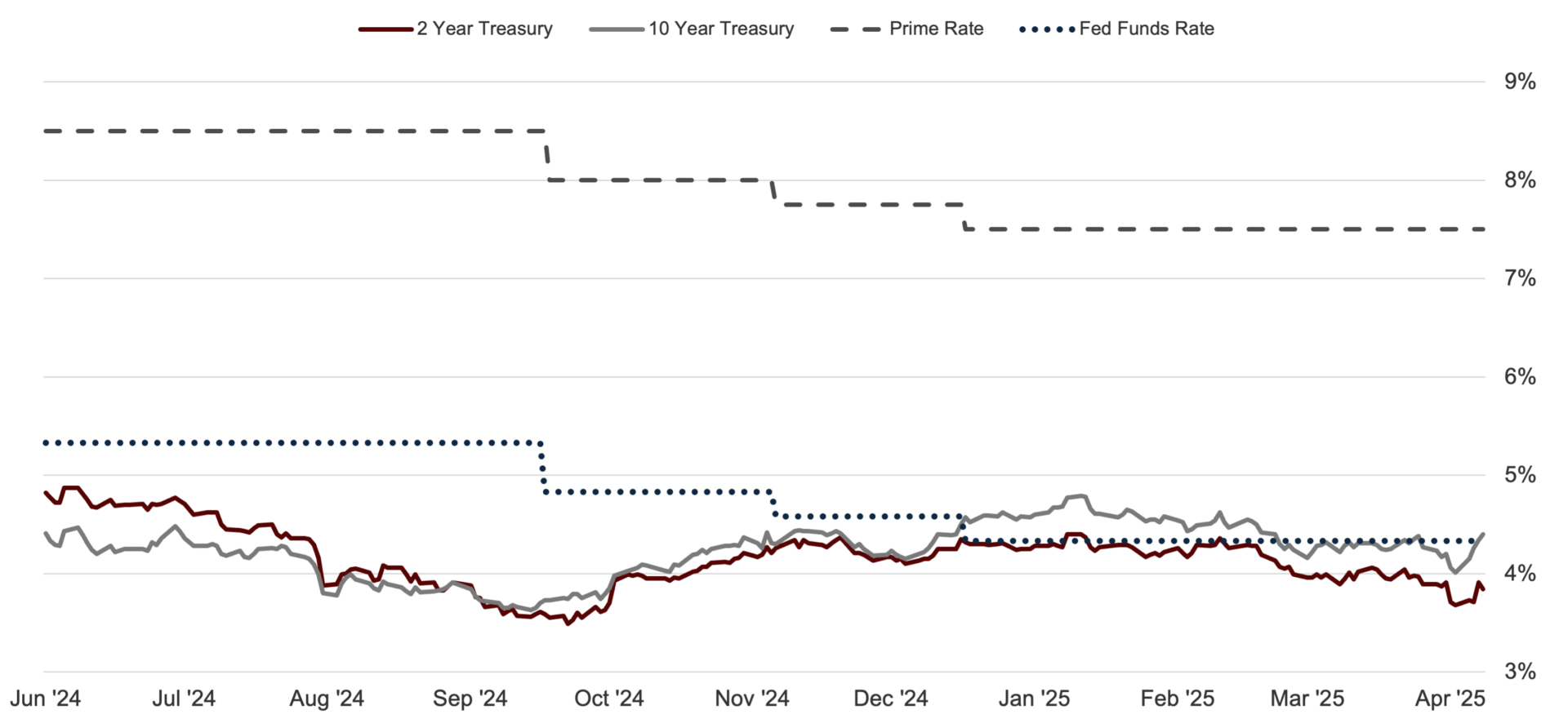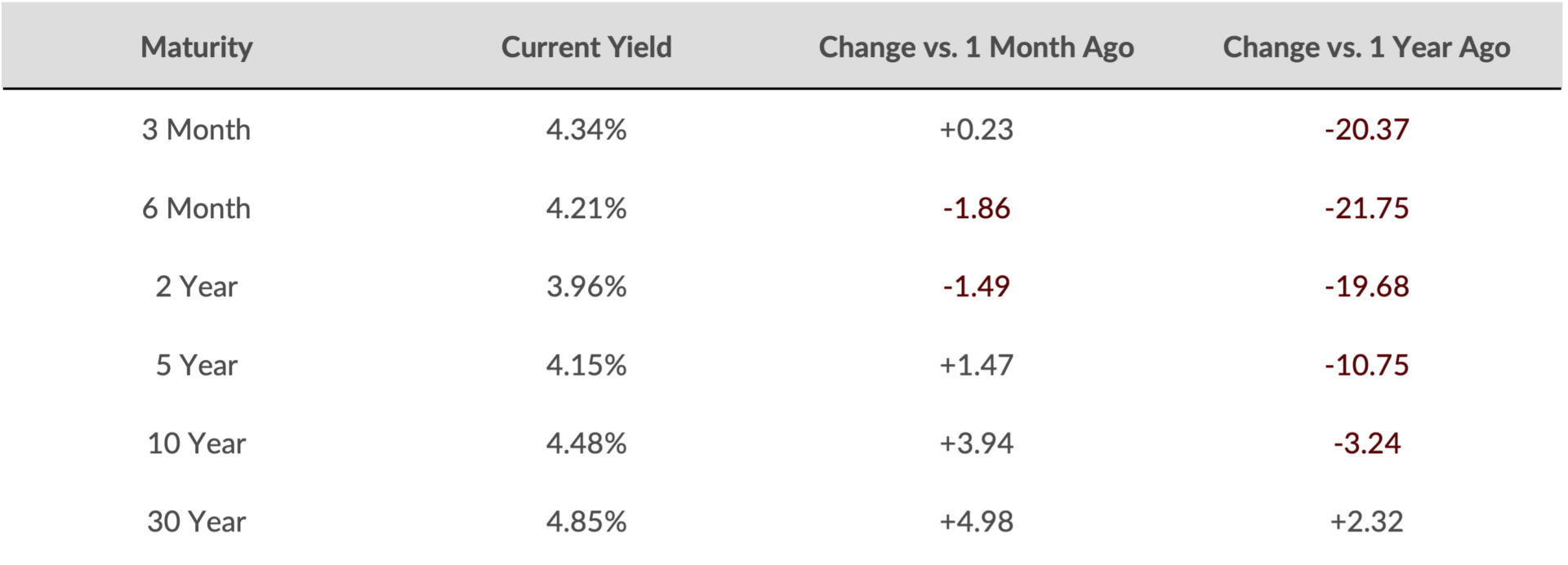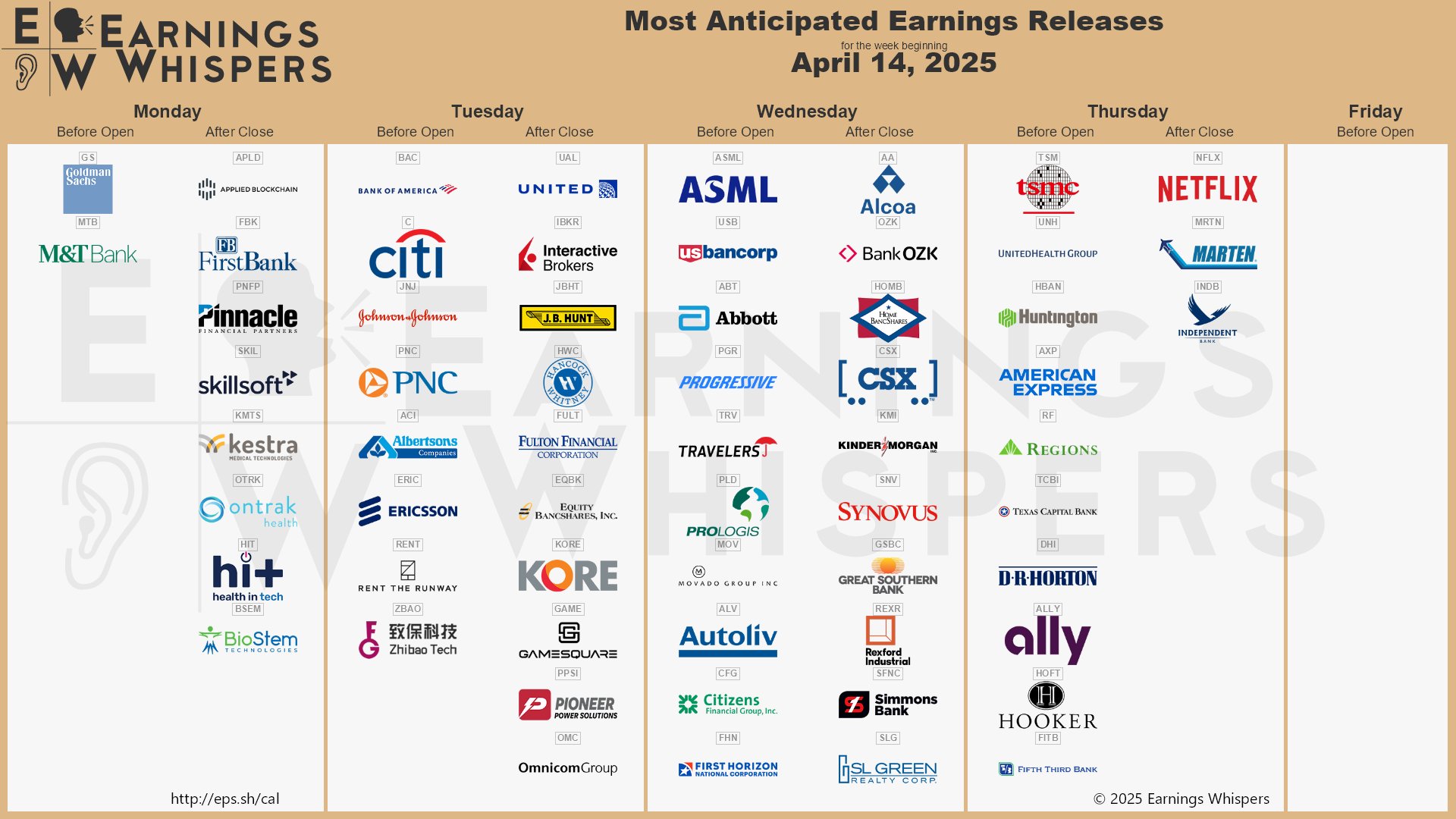Late Rally Caps Volatile Trading Week:
Stocks finished on a high note last week, notching strong gains following another volatile week of trading. Investors seemed to otherwise downplay encouraging inflation news, keeping their attention firmly on the latest tariff developments.
The S&P’s 500 Index rose 5.70%, while the Nasdaq Composite Index gained 7.29%. The Dow Jones Industrial Average picked up 4.95%. The MSCI EAFE Index, which tracks developed overseas stock markets, increased by 0.72%.1,2
Stocks Rebound
Stocks rallied on Monday after a report surfaced that the administration was considering a 90-day pause on tariffs. But when the White House clarified its position, sellers stepped in.
On Tuesday, prices jumped at the next opening bell after the Treasury Secretary said the U.S. was open to tariff negotiations with trading partners. The rally stalled and reversed on news the administration was adjusting tariffs on Chinese imports.3
After the White House announced a 90-day pause on specific tariffs on Wednesday, markets pushed higher. The S&P 500 gained 9.5%, its largest one-day increase in 17 years.4
Stocks fell again Thursday morning, appearing to overlook an upbeat Consumer Price Index report showing that core inflation (excluding food and energy) rose at a 2.8% annual rate–the best number in more than four years. Stocks finished the week with a powerful rally, capping a volatile trading week.5,6


Sources: U.S. Department of the Treasury, Board of Governors of the Federal Reserve System, Charles Schwab
Watching the Bond Market
The yield on the 10-year Treasury rose more than 50 basis points for the week, marking one of the most significant moves on record. (When bond yields increase, bond prices tend to move lower.)
The week’s action was unexpected. In the past, investors have turned to U.S. bonds during market turbulence. However, the ongoing tariff talks have, at least temporarily, influenced how some overseas investors view U.S. bonds.7,8
The bond market activity influenced the mortgage market, where the average rate on the popular 30-year fixed mortgage closed Friday at 7.1%, its highest level in two months.9
This Week: Key Economic Data

Source: Bloomberg Finance L.P.
This Week: Companies Reporting Earnings

Source: EarningsWhispers
Author

Gary Aiken
Chief Investment Officer
Concord Asset Management
—
Footnotes and Sources
1The Wall Street Journal, April 11, 2025
2Investing.com, April 11, 2025
3CNBC.com, April 8, 2025
4The Wall Street Journal, April 9, 2025
5The Wall Street Journal, April 10, 2025
6MarketWatch.com, April 11, 2025
7WSJ.com, April 9, 2025
8MarketWatch.com, April 9, 2025
9CNBC.com, April 11, 2025
Please remember that past performance may not be indicative of future results. Different types of investments involve varying degrees of risk, and there can be no assurance that the future performance of any specific investment, investment strategy, or product (including the investments and/or investment strategies recommended or undertaken by Concord Asset Management, or any non-investment related content, made reference to directly or indirectly in this article will be profitable, equal any corresponding indicated historical performance level(s), be suitable for your portfolio or individual situation, or prove successful. Due to various factors, including changing market conditions and/or applicable laws, the content may no longer be reflective of current opinions or positions. Moreover, you should not assume that any discussion or information contained in this article serves as the receipt of, or as a substitute for, personalized investment advice from Concord Asset Management. To the extent that a reader has any questions regarding the applicability of any specific issue discussed above to his/her individual situation, he/she is encouraged to consult with the professional advisor of his/her choosing.
The companies mentioned are for informational purposes only. It should not be considered a solicitation for the purchase or sale of any specific securities. Investing involves risks, and investment decisions should be based on your own goals, time horizon, and tolerance for risk. The return and principal value of investments will fluctuate as market conditions change. When sold, investments may be worth more or less than their original cost. The forecasts or forward-looking statements are based on assumptions, may not materialize, and are subject to revision without notice. The market indexes discussed are unmanaged and generally considered representative of their respective markets. Index performance is not indicative of the past performance of a particular investment. Indexes do not incur management fees, costs, and expenses. Individuals cannot directly invest in unmanaged indexes. The Dow Jones Industrial Average is an unmanaged index that is generally considered representative of large-capitalization companies on the U.S. stock market. Nasdaq Composite is an index of the common stocks and similar securities listed on the NASDAQ stock market and is considered a broad indicator of the performance of technology and growth companies. The MSCI EAFE Index was created by Morgan Stanley Capital International (MSCI) and serves as a benchmark of the performance of major international equity markets, as represented by 21 major MSCI indexes from Europe, Australia, and Southeast Asia. The S&P 500 Composite Index is an unmanaged group of securities that are considered to be representative of the stock market in general. U.S. Treasury Notes are guaranteed by the federal government as to the timely payment of principal and interest. However, if you sell a Treasury Note prior to maturity, it may be worth more or less than the original price paid. Fixed income investments are subject to various risks, including changes in interest rates, credit quality, inflation risk, market valuations, prepayments, corporate events, tax ramifications, and other factors. International investments carry additional risks, which include differences in financial reporting standards, currency exchange rates, political risks unique to a specific country, foreign taxes and regulations, and the potential for illiquid markets. These factors may result in greater share price volatility. Please consult your financial professional for additional information.
Concord Asset Management is neither a law firm, nor a certified public accounting firm, and no portion of the content should be construed as legal or accounting advice. A copy of Concord Asset Management’ current written disclosure Brochure discussing our advisory services and fees is available upon request or at https://concordwealthpartners.com/. Please Note: If you are a Concord Asset Management or Concord Wealth Partners client, please remember to contact the firm in writing, if there are any changes in your personal/financial situation or investment objectives for the purpose of reviewing, evaluating, and/or revising our previous recommendations and/or services, or if you would like to impose, add, or to modify any reasonable restrictions to our investment advisory services. Concord Asset Management and Concord Wealth Partners shall continue to rely on the accuracy of information that you have provided. Please Note: If you are a Concord Asset Management or Concord Wealth Partners client, please advise us if you have not been receiving account statements (at least quarterly) from the account custodian.
